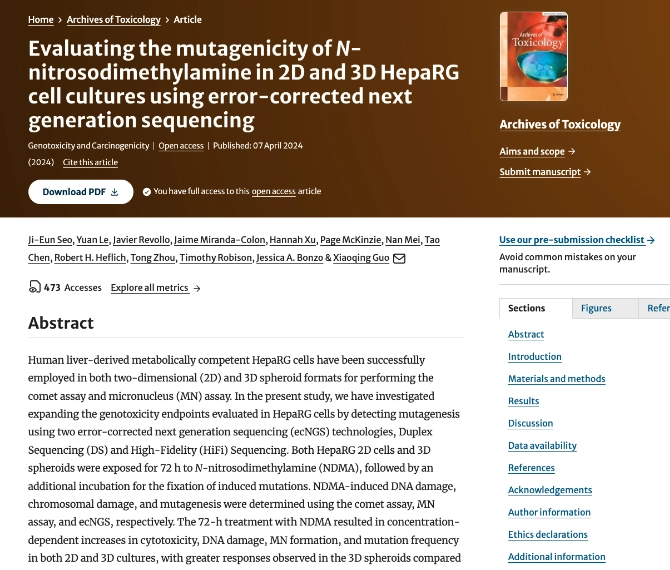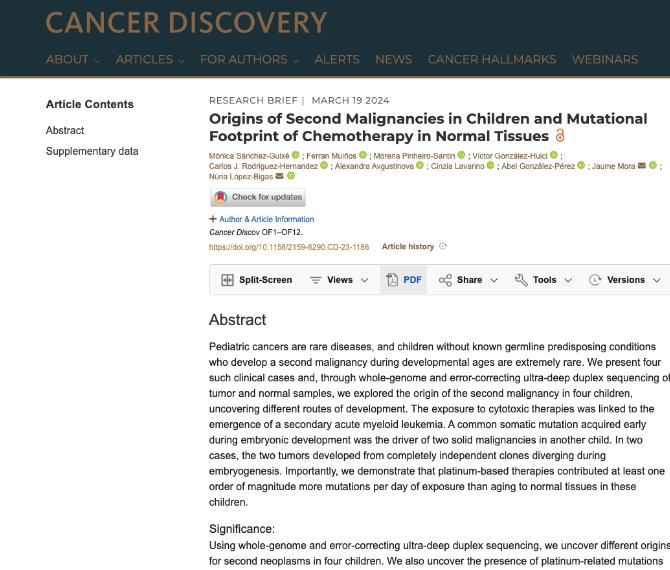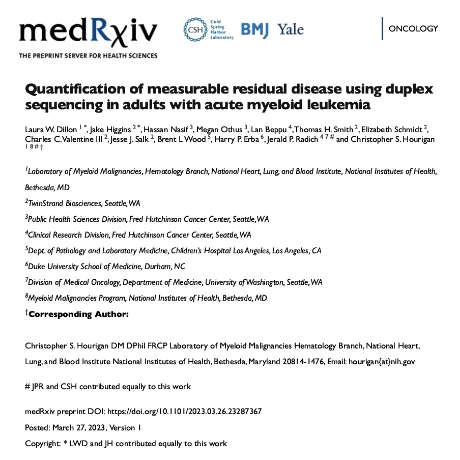Evaluating the mutagenicity of N-nitrosodimethylamine in 2D and 3D HepaRG cell cultures using error-corrected next generation sequencing

Origins of Second Malignancies in Children and Mutational Footprint of Chemotherapy in Normal Tissues

Mitochondrial haplotype and mito-nuclear matching drive somatic mutation and selection throughout ageing
Frequency and Spectrum of Mutations in Human Sperm Measured Using Duplex Sequencing Correlate with Trio-Based de Novo Mutation Analyses
Quantification of measurable residual disease using duplex sequencing in adults with acute myeloid leukemia

The presence of measurable residual disease (MRD) is strongly associated with treatment outcomes in acute myeloid leukemia (AML). Despite the correlation with clinical outcomes, MRD assessment has yet to be standardized or routinely incorporated into clinical trials. Discrepancies have been observed between different techniques for MRD assessment and there remains a need to compare centralized, […]
The chemotherapeutic drug CX-5461 is a potent mutagen in cultured human cells

Duplex sequencing (DS) is an error-corrected next-generation sequencing method in which molecular barcodes informatically link PCR-copies back to their source DNA strands, enabling computational removal of errors in consensus sequences. The resulting background of less than one artifactual mutation per 107 nucleotides allows for direct detection of somatic mutations. TwinStrand Biosciences, Inc. has developed a […]
